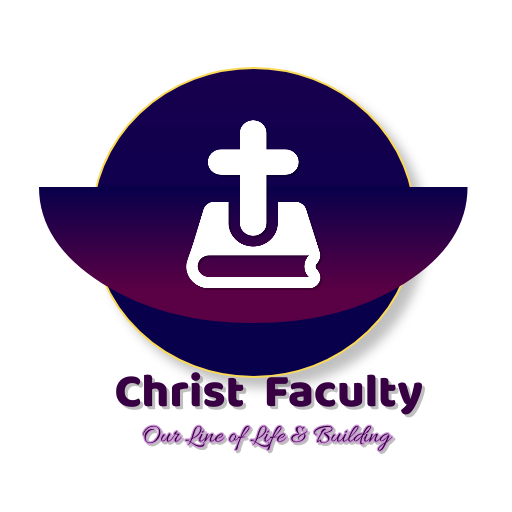Course Title: Historical Theology
Course Description:
Historical Theology explores the development of Christian doctrine throughout the history of the Church. This course examines the beliefs and theological reflections of the Church from the apostolic era to the present, focusing on how key doctrines were formed, defended, and articulated in response to various historical and cultural contexts. Students will engage with primary sources, including creeds, confessions, and writings of significant theologians, to understand the evolution of Christian thought. By tracing the historical development of doctrines such as the Trinity, Christology, salvation, and the authority of Scripture, this course aims to provide a deeper understanding of the theological heritage of Christianity and its relevance to contemporary faith and practice.
Course Overview:
- Duration: Typically one semester (12-16 weeks)
- Format: Lectures, readings, discussions, primary source analysis, and exams
- Prerequisites: None, but a basic knowledge of Christian doctrine or church history is beneficial
- Target Audience: Theology students, church leaders, and anyone interested in understanding the historical development of Christian beliefs
Course Objectives:
By the end of this course, students will be able to:
- Understand the Development of Christian Doctrine:
- Identify key figures, events, and movements that have shaped Christian theology throughout history.
- Explain how historical, cultural, and philosophical contexts influenced the development of Christian doctrine.
- Analyze Major Theological Controversies and Councils:
- Examine the causes and outcomes of significant theological debates in church history.
- Understand the role of ecumenical councils, creeds, and confessions in defining orthodox Christian beliefs.
- Trace the Historical Development of Key Doctrines:
- Follow the progression of core doctrines such as the Trinity, Christology, soteriology, and ecclesiology from the early church to the modern era.
- Appreciate the diversity of theological perspectives within the historical Christian tradition.
- Engage with Primary Sources in Historical Theology:
- Read and critically analyze primary texts, including writings of church fathers, reformers, and other key theologians.
- Develop skills in interpreting historical theological writings and assessing their impact on contemporary theology.
- Apply Insights from Historical Theology to Contemporary Issues:
- Reflect on the relevance of historical theology for contemporary faith and practice.
- Utilize historical theological insights to address current theological and ethical challenges in the Church.
Course Outline:
Week 1: Introduction to Historical Theology
- Definition and scope of historical theology
- The relationship between historical theology, systematic theology, and church history
- The importance of studying the history of Christian doctrine
Week 2: The Apostolic Fathers and Early Church (1st – 3rd Centuries)
- The formation of early Christian beliefs and practices
- Key figures: Ignatius of Antioch, Polycarp, Justin Martyr, Irenaeus
- The development of the rule of faith and the fight against early heresies (Gnosticism, Marcionism)
Week 3: The Development of the Trinity and Christology (4th – 5th Centuries)
- The Arian controversy and the Council of Nicaea (325 AD)
- The development of Trinitarian doctrine: Athanasius and the Cappadocian Fathers
- Christological debates: Council of Chalcedon (451 AD) and the definition of Christ’s two natures
Week 4: Augustine and the Doctrine of Grace (4th – 5th Centuries)
- Augustine’s contributions to theology: original sin, grace, and predestination
- The Pelagian controversy and the doctrine of human free will vs. divine grace
- Augustine’s influence on Western Christian thought
Week 5: The Early Medieval Church and the Rise of Scholasticism (6th – 12th Centuries)
- The role of monasticism in preserving and transmitting Christian doctrine
- Theological contributions of Anselm: the ontological argument and satisfaction theory of atonement
- Peter Abelard, Bernard of Clairvaux, and the beginnings of scholastic theology
Week 6: Thomas Aquinas and Medieval Theology (13th Century)
- Thomas Aquinas’ synthesis of Christian doctrine with Aristotelian philosophy
- The nature of God, creation, and the sacraments in Aquinas’ “Summa Theologica”
- The lasting impact of Aquinas on Catholic and Protestant theology
Week 7: The Eastern Church and the Development of Orthodox Theology
- The Great Schism of 1054: causes and theological implications
- Theological distinctives of Eastern Orthodoxy: theosis, icons, and the filioque controversy
- Key figures: John of Damascus, Gregory Palamas, and the defense of icons
Week 8: The Protestant Reformation (16th Century)
- Causes of the Reformation: corruption, the Renaissance, and theological dissent
- Key reformers: Martin Luther, John Calvin, Ulrich Zwingli
- Major doctrinal shifts: sola scriptura, sola fide, priesthood of all believers
Week 9: The Catholic Counter-Reformation and Council of Trent
- The Catholic Church’s response to the Reformation
- Key outcomes of the Council of Trent (1545-1563): reaffirmation of Catholic doctrines and reforms
- The role of the Jesuits and the revitalization of Catholic spirituality
Week 10: Post-Reformation Protestant Theology (17th – 18th Centuries)
- The rise of Protestant orthodoxy and confessionalism
- The development of Arminianism and the debate over free will vs. predestination
- The impact of the Enlightenment on Christian theology: rationalism, deism, and Pietism
Week 11: Theological Developments in the Modern Era (19th – 20th Centuries)
- The challenge of modernity: Darwinism, higher criticism, and liberal theology
- Key figures: Friedrich Schleiermacher, Karl Barth, and the rise of Neo-Orthodoxy
- The global expansion of Christianity and the rise of Pentecostalism and Charismatic movements
Week 12: Contemporary Theology (20th Century to Present)
- Theological pluralism and the rise of contextual theologies: liberation, feminist, and Black theology
- The impact of postmodernism on Christian thought
- Current trends in evangelical, mainline, and global Christianity
Week 13: The Doctrine of Scripture Throughout Church History
- The development of the canon of Scripture
- Views on the authority, inspiration, and interpretation of the Bible through the ages
- The impact of historical-critical methods and contemporary hermeneutics
Week 14: Historical Theology and the Future of the Church
- The role of historical theology in shaping future Christian doctrine
- How to engage constructively with historical theological insights in a modern context
- Preparing for final assessments and personal reflections on the course
Assessment Methods:
- Reading Assignments: Engaging with primary texts and historical writings from key theologians.
- Lectures & Discussions: Active participation in class lectures and discussions on historical developments.
- Primary Source Analysis: Critical analysis of key documents, creeds, and theological writings.
- Research Papers: Writing papers that explore the historical development of specific doctrines.
- Examinations: Midterm and final exams assessing comprehension of the evolution of Christian theology.
- Practical Application Projects: Relating historical theological insights to contemporary issues in the Church.
Recommended Texts:
- “Historical Theology: An Introduction to the History of Christian Thought” by Alister E. McGrath
- “The Story of Christian Theology: Twenty Centuries of Tradition & Reform” by Roger E. Olson
- “The Creeds of Christendom” by Philip Schaff
- “Reading Christian Theology in the Protestant Tradition” by Kelly Kapic and Hans Madueme
This course on Historical Theology is designed to provide a comprehensive understanding of how Christian doctrine has developed over time, equipping students with the historical context and theological insights needed to engage with contemporary theological challenges and to appreciate the rich heritage of the Christian faith.
Course Features
- Lecture 0
- Quiz 0
- Duration 16 weeks
- Skill level All levels
- Language English
- Students 163
- Certificate No
- Assessments Yes



